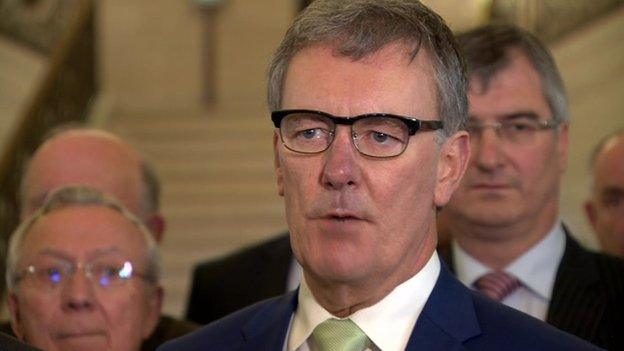Q&A: What happens now UUP has withdrawn from NI Executive?
- Published
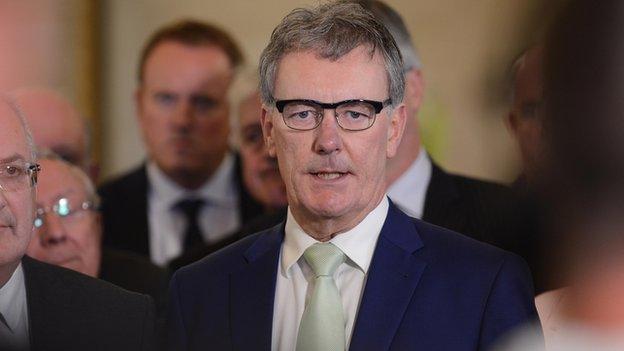
UUP leader Mike Nesbitt said the party intends to move into an opposition role
The Ulster Unionist Party's (UUP) ruling body has unanimously decided that the party will withdraw from the Northern Ireland Executive.
Party leader Mike Nesbitt's recommendation to leave the executive has been rubber-stamped, so what happens next?
The next step will centre on the resignation of the party's only executive minister, Danny Kennedy.
Under the Northern Ireland Act 1998, the minister can put notice in writing to the first and deputy first ministers.
UUP leader Mike Nesbitt has said Mr Kennedy will send in his letter of resignation on Tuesday.
The Ulster Unionists will then be asked to nominate a replacement within seven days.
If they do not nominate anyone, then under the d'Hondt system it will fall to the Democratic Unionist Party (DUP) to nominate a replacement, with Sinn Féin next in line if the DUP choose not to nominate.
The UUP said they were going into opposition - how would this happen?
The Stormont House Agreement would have created a mechanism for that by March had it been implemented.
The agreement sets out a range of measures to enable parties who would be entitled to ministerial positions in the executive but choose not to take them up to be recognised as an official opposition and to facilitate their work.
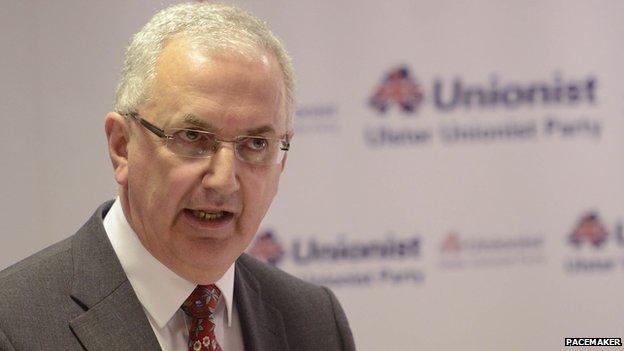
Danny Kennedy is expected to send his letter of resignation from his ministerial post on Tuesday
These measures include provision for financial and research assistance and designated speaking rights, including the opportunity to ask questions and table business.
But as things stand no special arrangements are in place, so the UUP will have no official recognition of their role outside the executive.
The DUP have said they are prepared to move to exclude Sinn Féin from the Northern Ireland Executive - how would this happen?
The legislation allows any member of the assembly to table a motion calling for the exclusion of a minister or political party on the grounds they are not committed to non-violence and exclusively peaceful means.
If a motion to exclude Sinn Féin comes to the floor of the assembly, it will need cross community consent to succeed.
At the moment that seems certain to fail given that Sinn Féin MLAs will vote against it and the other nationalist party, the SDLP, has also ruled out backing the motion.
The legislation says that in the event of such a motion not getting cross community support the Northern Ireland secretary of state can seek to exclude a party by direction.
But if Theresa Villiers was to do that she would know it would almost certainly collapse the Stormont executive.
Can the assembly be suspended?
Prior to the introduction of the St Andrews Agreement in 2006, Stormont could be suspended and Northern Ireland returned to direct rule.
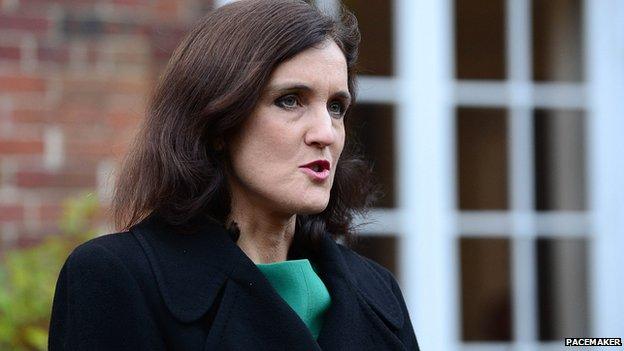
Theresa Villiers has the power to dissolve the assembly and call an election
This has happened four times since direct rule was first introduced in 1972.
The longest period of suspension was from 2002 to 2007.
In 2002 the existing team of three Northern Ireland Office ministers was augmented by two and the ministers divided the 11 ministerial departments as they were then - there was no department of justice - between them.
During that time direct rule ministers launched a consultation on water charges and took the controversial decision on a single site for maternity services to be located at the Royal Victoria Hospital in Belfast.
The legislation to suspend is no longer on the statute books.
It would require emergency legislation at Westminster to reinstate the power.
If the assembly cannot be suspended can it be dissolved?
The secretary of state has the power to dissolve the assembly and call an election.
Will MLAs continue to be paid if Stormont is dissolved?
When the assembly was suspended from 2002 to 2007 MLAs were paid 70% of their salaries.
What happens under dissolution is a different matter.
- Published20 October 2015
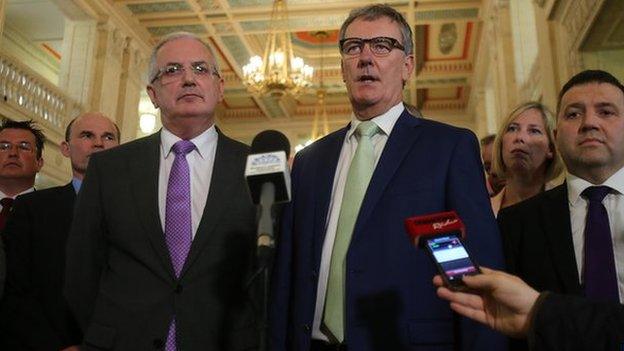
- Published26 August 2015
